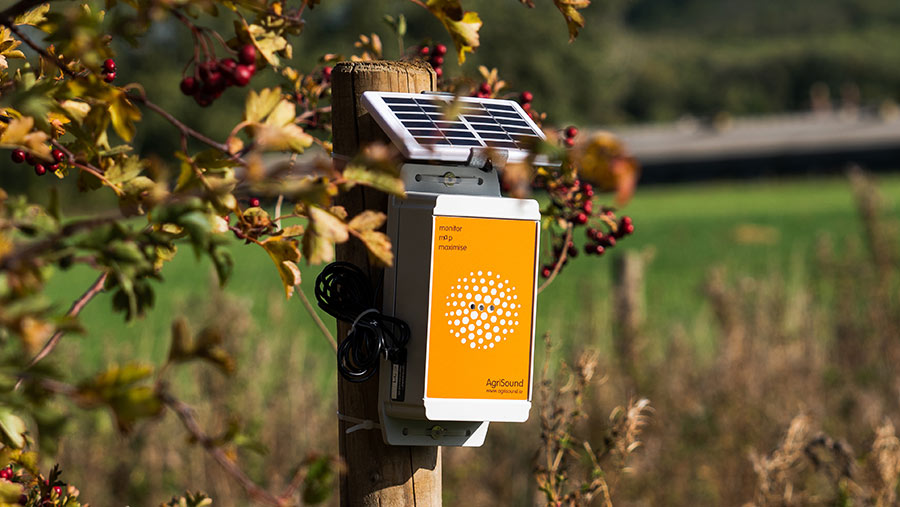Insect listening devices installed on pig farms
 © Cranswick Farm
© Cranswick Farm Pig production and processing company Cranswick has installed hi-tech insect listening devices on its farms to help increase biodiversity.
The units developed by ag-tech company AgriSound have been installed on farms in Norfolk and Lincolnshire and will monitor insect activity throughout the year.
See also: Funding boost for Scottish organic farming and slurry upgrades
Data gathered on the level of biodiversity and any changes in populations will help to inform farm management policy on Cranswick’s outdoor units.
Agrisound chief executive Casey Woodward explained that the acoustic devices measure sound, temperature, light and humidity. Sounds are then translated into activity scores which can be viewed online.
“This information, can be used to target the introduction of pollinator-protection measures and determine actions such as habitat creation,” Mr Woodward said.
Early results obtained over the first two months of operation on Cranswick’s farms have been encouraging, with an estimated level of 48,800 pollinators, he added.
Cranswick director of agricultural strategy Ash Gilman said the listening devices would help demonstrate how pigs could play a positive role within an arable rotation.
“This will ultimately benefit soil health and carbon sequestration, as well as presenting new habitats to encourage and increase biodiversity,” Mr Gilman said.
Siting the units was part of an ambitious strategy of environmental measures adopted by Cranswick, he added.
Cranswick has stated it wants to become the world’s most sustainable meat business with its farms achieving net-zero status by 2030.
As part of this strategy, it is scaling up natural carbon sequestration strategies in agricultural operations, regenerative agriculture and soil health programmes.

